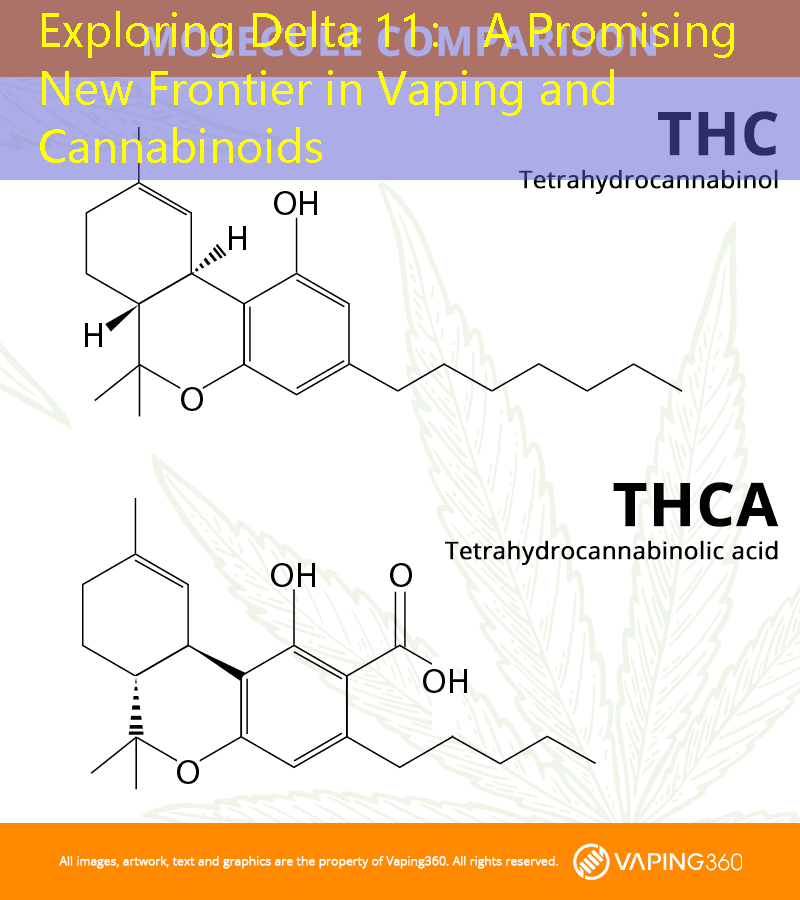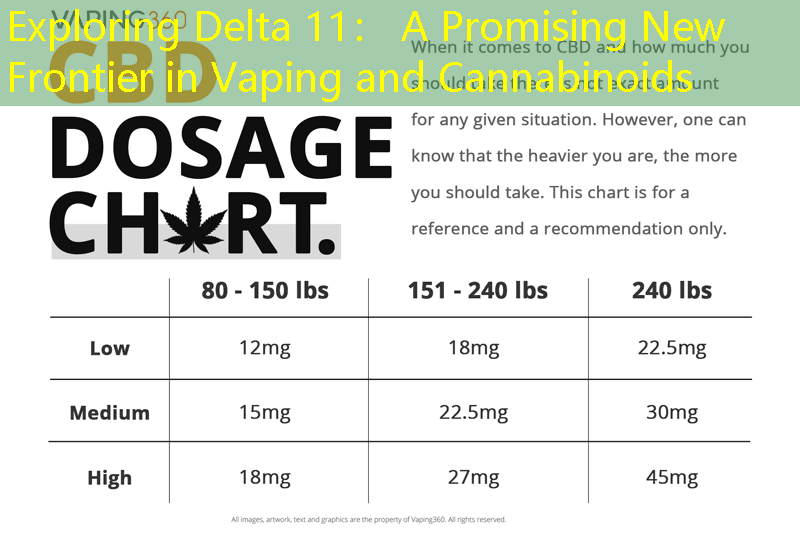1. Introduction to Delta 11
Delta 11 is gaining popularity in the realm of vaping and cannabinoids. As consumers explore new alternatives in the ever-evolving cannabis market, Delta 11 has emerged as an intriguing option. This article aims to provide a comprehensive guide to Delta 11, covering its definition, properties, potential benefits, and usage, along with answers to frequently asked questions.
2. Understanding Delta Compounds
Before diving into Delta 11, it’s essential to comprehend what delta compounds are. Delta compounds, including Delta 8, Delta 9, and Delta 10, are variations of tetrahydrocannabinol (THC), a major psychoactive component found in cannabis. Each delta compound has a unique arrangement of atoms, which influences its psychoactive effects, legality, and potential benefits.
3. What is Delta 11?
Delta 11 is relatively new to the cannabinoid scene. It’s a minor cannabinoid believed to be produced in small quantities during the degradation of CBD and other cannabinoids. Delta 11 possesses a unique molecular structure that differentiates it from its more commonly known counterparts, like Delta 9 THC. This distinction may lead to different effects and a potentially different user experience.
4. Extraction and Production
Delta 11 is not typically found in significant amounts in raw cannabis plants. Instead, it is derived through specialized extraction processes from hemp or cannabis extracts. Most commonly, Delta 11 is synthesized in laboratories from the natural degradation of cannabinoids, particularly CBD. This lab-based synthesis allows for increased consistency and potentially higher purity levels compared to naturally occurring cannabinoids.
5. Properties of Delta 11
One distinctive aspect of Delta 11 is its psychoactivity, which may differ from Delta 9 THC or other delta compounds. Delta 11 is said to provide a more balanced and less intense psychoactive effect, appealing to those who may find Delta 9 THC too overpowering. Additionally, preliminary research suggests that Delta 11 may have particular therapeutic properties, including anti-inflammatory and analgesic effects.
6. Benefits of Delta 11
As with many cannabinoids, users often seek out Delta 11 for various perceived benefits. Some potential advantages include:
- Relaxation and stress relief: Many users report a calming sensation without the overwhelming high commonly associated with Delta 9 THC.
- Pain relief: Some anecdotal evidence suggests Delta 11 could help manage chronic pain and inflammation.
- Improved focus: Unlike some cannabinoids that induce a strong high, Delta 11 may enhance concentration and mental clarity.
- Reduced anxiety: Users have described Delta 11 as offering a light, clear-headed experience, which may be beneficial for those dealing with anxiety.

7. Methods of Consumption

Delta 11 can be consumed in several forms, similar to other cannabinoids. Common methods include:
- Vaping: One of the most popular methods due to its quick onset and perceived efficiency. Delta 11 vape cartridges are becoming increasingly available.
- Edibles: Delta 11 can be infused into various edibles, allowing for an enjoyable experience while consuming cannabinoids.
- Tinctures: Like other cannabinoids, Delta 11 tinctures can be sublingually administered for faster absorption.
- Topicals: For localized effects, Delta 11-infused creams and balms can be applied directly to the skin.

8. Legality of Delta 11
The legality of Delta 11 is a complex issue, resembling the legal framework surrounding Delta 8 and Delta 9 THC. As of now, Delta 11 is legal in some regions under the 2018 Farm Bill, provided it is derived from hemp and contains less than 0.3% Delta 9 THC. However, legality can vary greatly by state and country, necessitating thorough research before purchasing or using Delta 11 products.
9. Safety and Side Effects
While anecdotal evidence might suggest the safety of Delta 11, research is still in its early stages. Potential side effects may resemble those associated with other cannabinoids and can include:
- Dizziness
- Dry mouth
- Increased appetite
- Anxiety or paranoia in sensitive individuals
As with any cannabinoid, it is advisable to start with a low dose and consult with a healthcare provider if unsure about its use.
10. Conclusion
In conclusion, Delta 11 harbors much potential within the world of cannabinoids. As a lesser-known compound, it offers a unique experience that may suit those looking for a milder alternative to traditional THC options. As ongoing research continues to reveal the properties and benefits of Delta 11, consumers should stay informed and consider exploring new products available in the market.
11. What Makes Delta 11 Distinct from Other Delta Compounds?
Delta 11 differs from other delta compounds primarily in its molecular structure and the effects it provides. While Delta 9 is well-known for its powerful psychoactive effects, Delta 11 is often touted to deliver a more subtle experience, which may be preferable for recreational or medicinal users who want to avoid intense psychoactivity.
12. Is Delta 11 Legal?
The legality of Delta 11 is contingent upon its source and the regulations in one’s region. Generally, if derived from hemp and containing less than 0.3% Delta 9 THC, Delta 11 is federal legal in the United States. However, state-specific laws may impose restrictions, requiring users to verify local regulations.
13. Are There Any Known Side Effects of Delta 11?
Initial reports from users indicate that Delta 11 may have side effects similar to other cannabinoids, including mild dizziness, dry mouth, and increased appetite. While it may be considered safer and less intense than Delta 9, individuals should proceed with caution and consult healthcare providers if necessary.







